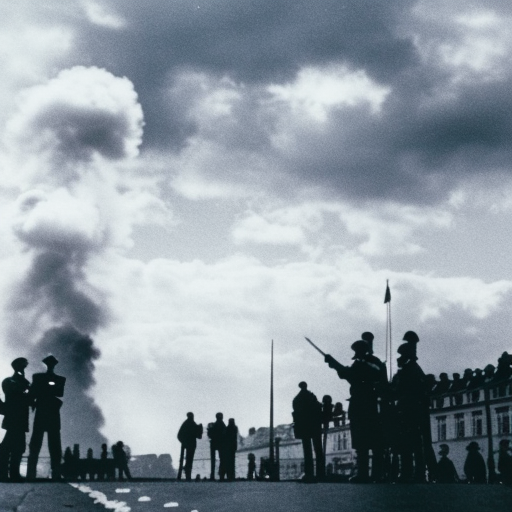Summary:
The Warsaw Pact invasion of Czechoslovakia, also known as Operation Danube, was a military intervention by the Soviet Union and its allies in August 1968. The invasion aimed to suppress the Prague Spring, a period of political liberalization in Czechoslovakia led by Alexander Dubček. The Soviet-led forces occupied the country, deposed Dubček, and installed a more compliant government. The invasion had a significant impact on Czechoslovakia and the wider Eastern Bloc, leading to a period of repression and stagnation.
Background:
In the late 1960s, Czechoslovakia experienced a period of political and social reform known as the Prague Spring. Under the leadership of Alexander Dubček, the Communist Party of Czechoslovakia implemented policies aimed at increasing political openness, freedom of speech, and economic decentralization. These reforms were met with enthusiasm by the Czechoslovak people but alarmed the Soviet Union and its allies within the Warsaw Pact.
Causes:
The Soviet Union and other Warsaw Pact countries were concerned that the reforms in Czechoslovakia could inspire similar movements in their own territories. They feared losing control over their satellite states and the potential erosion of their influence in the Eastern Bloc. Additionally, the Soviet leadership was worried about the potential for Czechoslovakia to leave the Warsaw Pact and align itself with the West.
Events:
On the night of August 20, 1968, approximately 200,000 troops from the Soviet Union, Poland, East Germany, Hungary, and Bulgaria crossed the Czechoslovak border. The invasion was swift and overwhelming, with the invading forces quickly taking control of key strategic locations. The Czechoslovak military, under orders not to resist, offered only token resistance.
Consequences:
The invasion of Czechoslovakia had far-reaching consequences for both the country and the wider Eastern Bloc. In the immediate aftermath, the new Czechoslovak government, led by Gustav Husak, reversed many of the reforms of the Prague Spring. Political repression increased, and dissent was suppressed. Many intellectuals, artists, and political activists were purged or forced into exile.
Internationally, the invasion led to a significant deterioration in relations between the Soviet Union and its Western counterparts. The invasion was widely condemned by the international community, and the Soviet Union faced diplomatic isolation. The event also contributed to a shift in Western policies towards the Eastern Bloc, with a greater emphasis on detente and dialogue.
Legacy:
The Warsaw Pact invasion of Czechoslovakia marked a turning point in the history of the Eastern Bloc. It shattered the illusion of unity within the Warsaw Pact and exposed the limitations of Soviet power. The invasion also highlighted the desire for political and social change among the people of Eastern Europe, which would eventually lead to the collapse of the Soviet Union and the end of the Cold War.
In Czechoslovakia, the invasion left a lasting impact on the collective memory of the nation. The events of 1968 became a symbol of resistance against foreign oppression and a reminder of the importance of freedom and democracy. The legacy of the Prague Spring and the subsequent invasion continue to shape Czech society and politics to this day.












